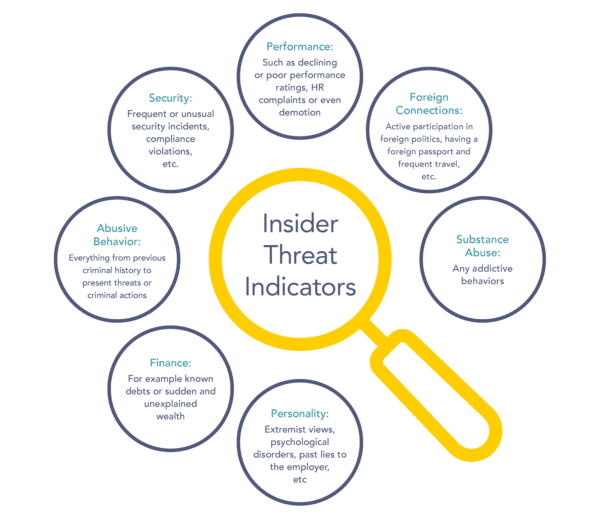
“`html
Unveiling the Hidden Menace: Uncover Insider Threat Indicators for Enhanced Cybersecurity
In the digital realm, where data breaches and cyberattacks are rampant, insider threats often go unnoticed—a silent and devastating force from within. By shedding light on these hidden indicators, organizations can bolster their cybersecurity posture and effectively mitigate the risks posed by malicious insiders.
Recent statistics paint a grim picture: Insider threats account for a staggering 21% of all security breaches, causing irreparable damage to organizations and individuals alike. The consequences are far-reaching, jeopardizing sensitive data, disrupting operations, and undermining trust.
To combat this insidious threat, it is imperative to go beyond traditional security measures and delve into the realm of human behavior. By identifying insider threat indicators and understanding the motivations behind them, organizations can proactively prevent costly breaches.
Early Detection: Spotting the Telltale Signs
Identifying insider threats is a complex task, but it is not an impossible one. By being vigilant and attuned to subtle behavioral changes, organizations can detect potential threats before they escalate into full-blown incidents.
Some of the telltale signs of insider threats include:
- Excessive access to sensitive data or systems
- Unusually high download activity
- Attempts to bypass security protocols
- Unexplained changes in behavior or demeanor
- Unusual interactions with external entities
Understanding the Motives: Exploring the Why
While detecting insider threats is crucial, it is equally important to understand the underlying motivations that drive individuals to engage in such malicious activities.
Research indicates that insider threats stem from a complex interplay of factors, including:
- Financial gain
- Revenge or retaliation
- Personal grievances
- Ideological differences
- Negligence or lack of awareness
Insider Threat Prevention: Taking a Proactive Stance
Preventing insider threats requires a comprehensive approach that encompasses both technical and human elements. Organizations must implement robust security controls to minimize vulnerabilities and deter malicious behavior.
Additionally, investing in employee education and awareness programs is essential. By fostering a culture of cybersecurity consciousness, organizations can empower their workforce to recognize and report suspicious activities.
Table: Insider Threat Indicators and Detection Techniques
| Indicator | Detection Technique |
|---|---|
| Excessive access to sensitive data | Monitoring user activity logs |
| Unusually high download activity | Network traffic analysis |
| Attempts to bypass security protocols | Intrusion detection systems |
| Unexplained changes in behavior or demeanor | Employee performance monitoring |
| Unusual interactions with external entities | Email and social media monitoring |
Conclusion: Empowering Organizations with Insider Threat Awareness
In the face of evolving cyber threats, organizations must adapt their cybersecurity strategies to address the growing threat of insider attacks. By embracing a proactive approach that focuses on detecting and preventing insider threats, organizations can effectively protect their sensitive data, safeguard their operations, and maintain trust among stakeholders.
The key lies in recognizing the subtle indicators of insider threats, understanding the underlying motivations, and implementing a comprehensive defense system that combines technical and human elements. By shining a light on the unseen, organizations can empower themselves to mitigate the risks posed by malicious insiders and ensure the integrity of their cybersecurity infrastructure.
“`